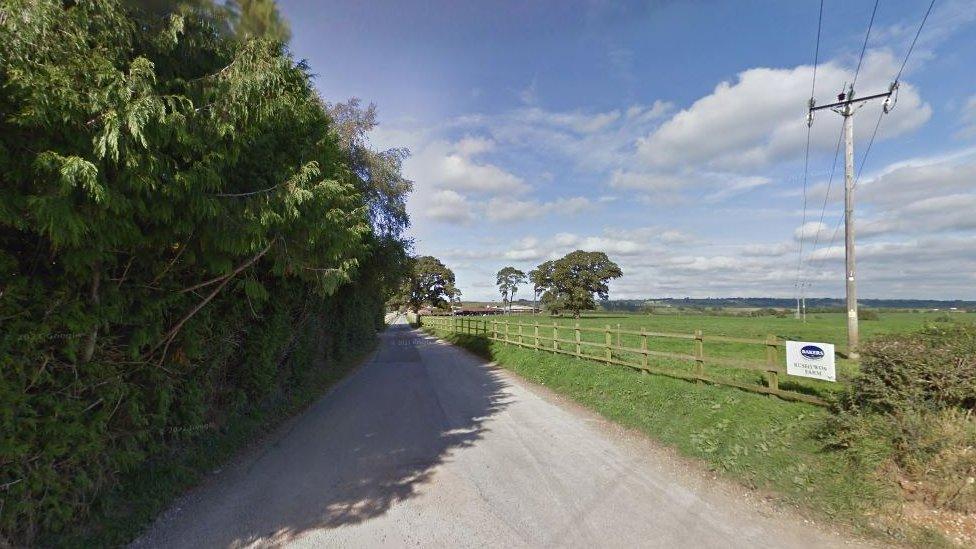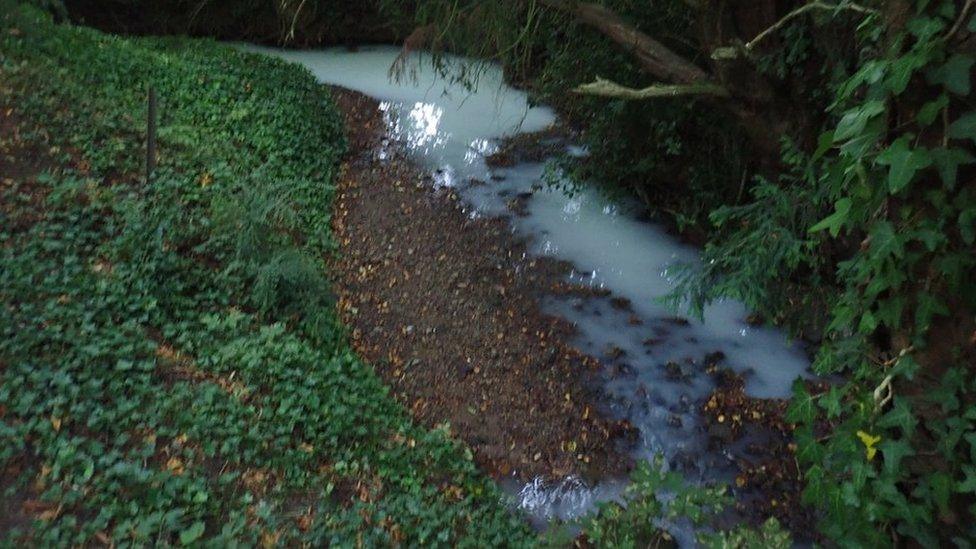Somerset farmer fined thousands for polluting stream
- Published

A farm in Somerset had had to pay thousands of pounds for polluting a stream
A farm has been fined thousands of pounds by the Environment Agency for polluting a stream.
Neil Baker of Rushywood Farm in Haselbury Plucknett, near Crewkerne was fined £16,000 and ordered to pay £3,220 by Taunton Magistrates.
He admitted two charges relating to causing pollution which caused water quality to drop after sewage fungus was found.
The farm had already been told to make improvements to stop polluting.
The court heard that Environment Agency officers were called to Small Brook in February 2022 after receiving a report of sewage fungus in the watercourse which was then confirmed with tests.
Officers traced the source of the pollution to a leaking silage clamp on farmer Neil Baker's land.
Silage effluent was leaking out from a large silage clamp, pooling in the field and overflowing into the ditch.
Sewage fungal growth was seen on the entire length of the Small Brook, a stretch of more than 2,624ft (800m), until it joined with the larger Broad River.
'Non-compliant'
Neil Baker initially refused to engage with the officers when they spoke to him and claimed not to know where the pollution in the ditch came from.
Once the source was pointed out he agreed to block the ditch and redirect the polluting effluent to a temporary lagoon.
The court heard that the Environment Agency had specifically highlighted the silage making areas as non-compliant with regulations during a routine farm inspection in 2019.
A farm inspection report set out the actions needed to be done to avoid a pollution incident, such as the one to the Small Brook, from happening.
In a statement sent to the Environment Agency, the company admitted responsibility for the pollution coming from the silage clamp and that it had not notified the Agency in advance of starting construction of one of the silage clamps as required under the Silage, Slurry and Agricultural Fuel Oil regulations (SSAFO).
The company also admitted it had not made the improvements to drainage from the silage clamp recommended and agreed in 2019.
The company set out remediation actions taken at the time of the pollution incident to stop effluent entering the watercourse and how they had since made the main silage clamp SSAFO compliant.
Senior Environment Agency officer, Dave Womack, said: "The company had been given clear advice and guidance on what they needed to do to improve the silage making areas comply with regulations that have been in place for more than 30 years.
"If the new silage clamp had been installed with perimeter effluent channels on all sides, or if the agency had been notified of its construction, as required by law, this pollution event could easily have been prevented.
"It was reckless to ignore the construction standards and the advice given previously.
"Anyone planning to build new silage or slurry facilities must consult with the Environment Agency prior to starting construction.
"We are here to help ensure the correct construction standards are followed and that new facilities are located a minimum of 32ft (10m) from watercourses, which will minimise the risk of pollution occurring."

Follow BBC West on Facebook, external, X, external and Instagram, external. Send your story ideas to: bristol@bbc.co.uk , external
Related topics
- Published13 November 2023

- Published26 November 2023